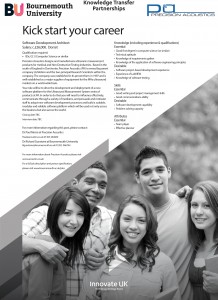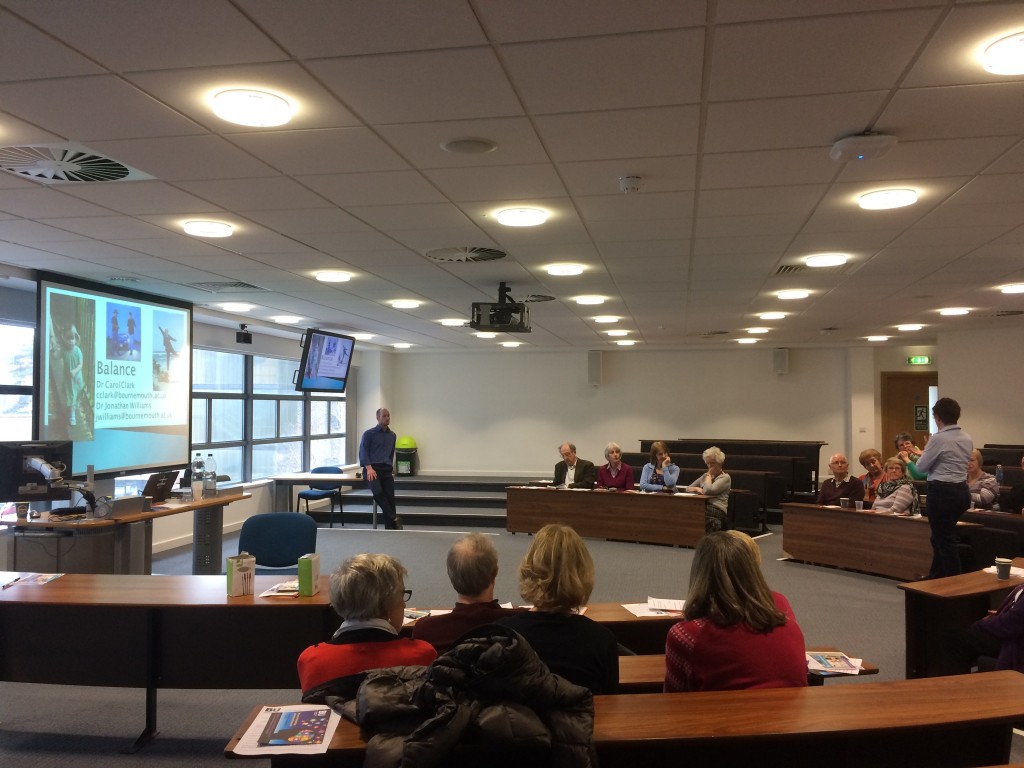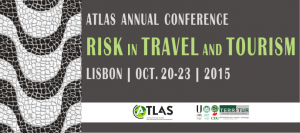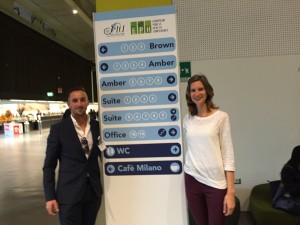There are still some places left to attend this joint one-day BSA and BU conference, happening on 3rd November, in Bournemouth House. If you would like to register, please get in touch with Dr Mastoureh Fathi, mfathi@bournemouth.ac.uk or visit http://www.britsoc.co.uk/events/key-bsa-events.aspx
The conference programme can be viewed here:
9.00-9.30
Registration and Refreshments
Outside BG14
9.30-9.45
Welcome: Professor Jonathan Parker (Bournemouth University) Introduction and welcome to the Faculty of Health and Social Sciences
Welcome to the Citizenship Study Group: Dr Mastoureh Fathi (Bournemouth University) and Dr Kristoffer Halvorsrud (Knowledge Centre for Education, Norway)
9.45-10.45
Keynote: Dr Bridget Byrne (University of Manchester) ‘What is the Britishness in ‘British values’ and the citizenship process?’
10.45-11.00
Refreshment break
11.00-13.00
Policy and Politics Panel: Citizenship and Neo-Liberalism
Professor. Jonathan Parker (Bournemouth University): Students and Prevent: Implications for citizenship
Dr Lee Jerome (Middlesex University): England’s Citizenship Education Experiment: The First Ten Years
Rachel Lewis (University of Warwick): Testing Life in the UK, producing the desirable, neo-liberal subject
Dr Anisa Mustafa (University of Nottingham): Active citizenship and modes of resistance in the cultural politics of young adult British Muslims
Dr Nick Stevenson (University of Nottingham): Education, Democracy and its Alternatives: The Commons and the New Left
13.00-14-00
Lunch
14-00-15.15
Parallel Sessions
1. Comparative Contexts
Prof Trond Solhaug (Norwegian University of Science and Technology): Citizenship, diversity and antecedents of intercultural empathy among Norwegian pupils (Abstract)
Dr Shinichi Aizawa (Chukyo University): Citizenship, Social Problems, and Schooling in Japan
Caitríona Fitzgerald (Maynooth University): ‘Citizen Child; Hothouse Flower or Hardy Perennial? An exploration of contemporary debates about 21st century children’s ‘lived’ citizenship framed within the context of Irish and Swedish educational policy’
2.“Britishness” and Faith
Céline Benoit (Aston University): The role of secular state schools in the promotion of a White Christian sense of Britishness
Iro Konstantinou (University of Warwick):‘Promoting British values in an English, white, middle class context’
Iftikhar Ahmad (London School of Islamics Trust): Muslims faiths schools and the curriculum
15.15-15.30
Refreshment Break
15.30-16.45
Parallel Sessions
1. Faith and “Cohesion”
Donna Crossland (University of Kent): A rhetoric of social cohesion, tolerance and civility: A good lessen to learn?
Rachael Shillitoe (Institute of Education, University of Worcester): ‘Doing Good’: Understanding values and morality in collective worship
Shiva Zarabadi: ‘Crossing borders, changing faiths and the new organization of self and society’, The experiences of migrant Iranian converts to Christianity in the UK
2. Policy Processes and Relations
Dr Martin Myers (The Open University): Mobility, Citizens and Education: Are Gypsies supposed to be citizens?
Dr Kristoffer Halvorsrud (Knowledge Centre for Education, The Research Council of Norway): Student ‘Dropout’ in Upper Secondary Education: A Challenge to the Norwegian ‘Welfare State’?
Dr Tamsin Hinton-Smith (University of Sussex): Roma women in European Higher Education: Exploring Tensions of Individual and Shared Responsibility in Policy and Experience
16.45-17.00
Refreshment Break
17.00-18.00
Keynote: Professor David James (Cardiff University) ‘Bringing the local knowledge back in?












 To cope with the ‘wicked’ nature of problems within adult social care it is important that leaders are able to think beyond usual leadership and management approaches. ‘Wicked problems’ require ‘wicked solutions’, a break with the constraints of the past and an approach which embraces creativity. It requires individuals who can facilitate a collaborative approach to harness creativity across different stakeholders both internal and external to their organisation. It requires a style of leadership which is focused on participation rather than top down direction – that is inclusive, and supports engagement with collective ideas. Such leaders need to work with the resources within their own workforce by adopting ‘the moral resourcefulness’ to engage in challenging conversations (Hutchinson et al. 2015:3022). Only collective engagement within and across organisations can hope to address the ‘wicked problems’.
To cope with the ‘wicked’ nature of problems within adult social care it is important that leaders are able to think beyond usual leadership and management approaches. ‘Wicked problems’ require ‘wicked solutions’, a break with the constraints of the past and an approach which embraces creativity. It requires individuals who can facilitate a collaborative approach to harness creativity across different stakeholders both internal and external to their organisation. It requires a style of leadership which is focused on participation rather than top down direction – that is inclusive, and supports engagement with collective ideas. Such leaders need to work with the resources within their own workforce by adopting ‘the moral resourcefulness’ to engage in challenging conversations (Hutchinson et al. 2015:3022). Only collective engagement within and across organisations can hope to address the ‘wicked problems’.















 New Nepal scoping review on maternal & neonatal health
New Nepal scoping review on maternal & neonatal health Fourth INRC Symposium: From Clinical Applications to Neuro-Inspired Computation
Fourth INRC Symposium: From Clinical Applications to Neuro-Inspired Computation Writing policy briefs
Writing policy briefs Upholding Excellence: The Concordat to Support Research Integrity
Upholding Excellence: The Concordat to Support Research Integrity ECR Funding Open Call: Research Culture & Community Grant – Application Deadline Friday 12 December
ECR Funding Open Call: Research Culture & Community Grant – Application Deadline Friday 12 December MSCA Postdoctoral Fellowships 2025 Call
MSCA Postdoctoral Fellowships 2025 Call ERC Advanced Grant 2025 Webinar
ERC Advanced Grant 2025 Webinar Horizon Europe Work Programme 2025 Published
Horizon Europe Work Programme 2025 Published Horizon Europe 2025 Work Programme pre-Published
Horizon Europe 2025 Work Programme pre-Published Update on UKRO services
Update on UKRO services European research project exploring use of ‘virtual twins’ to better manage metabolic associated fatty liver disease
European research project exploring use of ‘virtual twins’ to better manage metabolic associated fatty liver disease